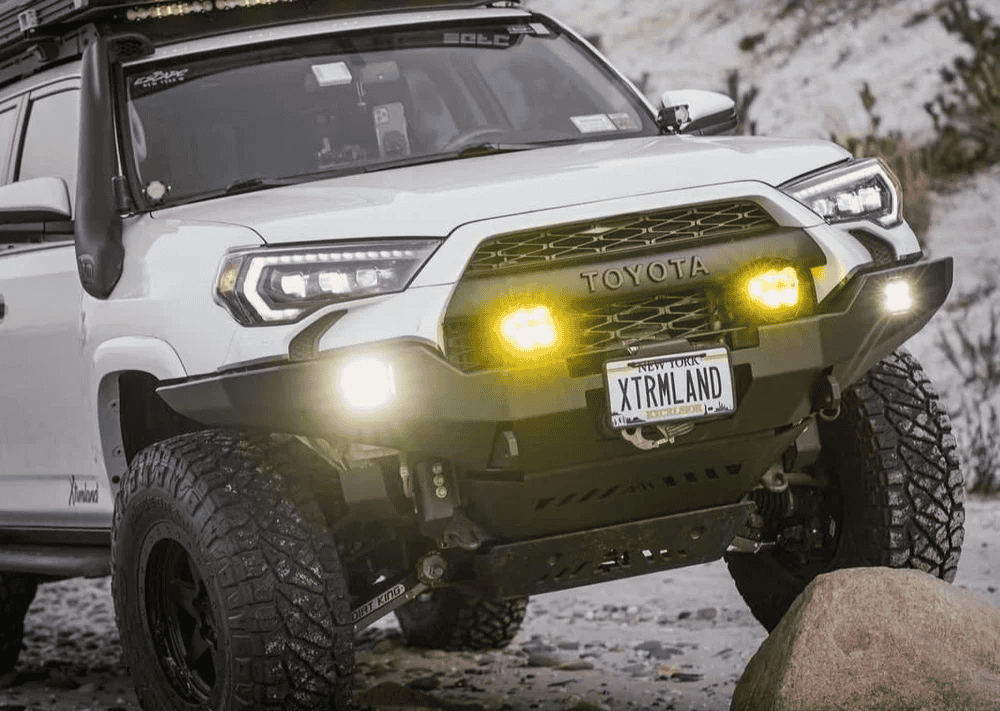Overland Vehicles

Aluminum construction gives high strength per pound, does not rust, and can be repaired with standard fabrication methods. An aluminum frame truck camper often uses extrusions, bonded panels, and sealed seams to create a rigid box that stays quiet on washboard roads. Panels resist rot compared to wood framed builds, and when properly sealed they handle rain, road spray, and coastal air with less maintenance. The tradeoff is thermal bridging through metal members, which is solved by adding continuous insulation, thermal breaks, and careful window selection. For buyers comparing an aluminium truck camper to composite or wood framed options, the key is balancing weight savings with thermal performance.
Focus on seam sealing, corrosion resistant fasteners, and proper turnbuckle tension. Inspect roof joints, hatch openings, and bed rail interfaces after the first few hundred miles. Clean road salts quickly in winter to protect hardware, especially if your routes include Canada.
Weight dictates everything from tire choice to braking distance. A light weight camper shell may add roughly 100 to 200 lb, which keeps most half ton trucks within safe payload even with passengers and gear. Many full featured slide in units, even with an aluminum frame, can range from 800 to over 1200 lb dry, with batteries, water, and gear pushing total added load well higher. Confirm your door jamb payload rating, then estimate people, fuel, water, and equipment to see what margin remains for the camper. Keep center of gravity forward of the rear axle to maintain steering feel and stability. Upgrades like load rated tires, tuned shocks, and progressive helper springs can improve control, but they do not increase the legal payload rating.
Cold mornings and summer heat shape comfort more than any single feature. Lithium power, a compact inverter, and a vent fan manage daily loads for lighting and devices. Add a sealed combustion heater and closed cell insulation for four season use. For overland truck camper Canada travel, look for thermal window coverings, insulated floors, and a way to separate wet gear so condensation does not spike overnight.
A camper that fits the bed rails and clears the cab without contact is foundational. Measure bed length, wheel well width, and the notch around the tailgate opening. Truck topper campers that convert a light weight camper shell into a sleeping area can use a raised deck over drawers, leaving space for tools and recovery gear below. A custom aluminum truck camper interior may add a compact galley, a cassette toilet, and quick access to recovery gear. Roof loads should be minimized to keep sway low; if you carry bikes or boards, keep them forward and close to the roof.
Consider total system cost, not only the shell or camper price. Factor mounting hardware, electrical, heat, ventilation, and storage. A staged plan can start with a shell and sleep deck, then add power and heat as trips expand.
The vocabulary around these choices overlaps by region. A light weight camper shell is often called a canopy or topper. Truck topper campers usually refer to shells enhanced with interior modules that handle sleep, storage, and sometimes power. An aluminum truck camper typically points to a slide in unit with a hard sided box that extends above the bed rails, often with standing room and integrated systems. Each path can be built for backroads travel; success depends on keeping weight in check and protecting the truck’s mechanicals.
If you are weighing an aluminum truck camper against a composite build, consider repairability on the road. Aluminum can be reinforced with brackets and plates if a mount point stretches or a panel flexes after a hard trail day. With any design, use frame mounted tie downs and spring loaded turnbuckles to allow slight movement without tearing anchors. Keep a torque routine and recheck after the first long trip.
Cold weather details matter. Foam gaskets at the bed rails reduce dust intrusion. A vapor retarder behind interior panels helps manage condensation in freezing temps. Store wet clothing in a ventilated bay so moisture does not migrate into bedding. These small details make a big difference when nights drop below freezing in mountain regions.
OZK Customs builds travel ready trucks that respect weight targets and real world use. Our team designs and installs aluminum based enclosures, integrated power, heat, and storage that align with your payload and route. See our approach to capable, low maintenance builds on Overland rigs, explore tailored packages on Custom overland upfit, and learn how we work on Why choose OZK Customs. We listen first, then engineer a solution that fits your truck, climate, and timeline.
Tell us your truck model, expected payload, and where you plan to roam. Whether you want a refined truck topper campers build or a purpose built aluminum truck camper interior, we will map fitment, power, and comfort for your routes. When you are ready to turn ideas into a reliable setup, our Fayetteville shop can deliver installations that feel factory clean yet trail proven.
We build custom overland upfits for recreational travel, overland rigs, and commercial platforms. Our services include complete custom builds and partial upfits with power systems, heating, insulation, storage, racks, lighting, and Starlink installation.
Ready to plan a purpose built aluminum based overland truck solution? Tell us your routes, seasons, and payload. Our team will spec structure, power, and storage that fit your truck and travel goals, then build and install with clean workmanship. Share a few details to get a tailored quote and timeline.
ADDRESS:
6159 E Huntsville Rd, Fayetteville, AR 72701
PHONE:
(479) 326-9200
EMAIL:
info@ozkvans.com